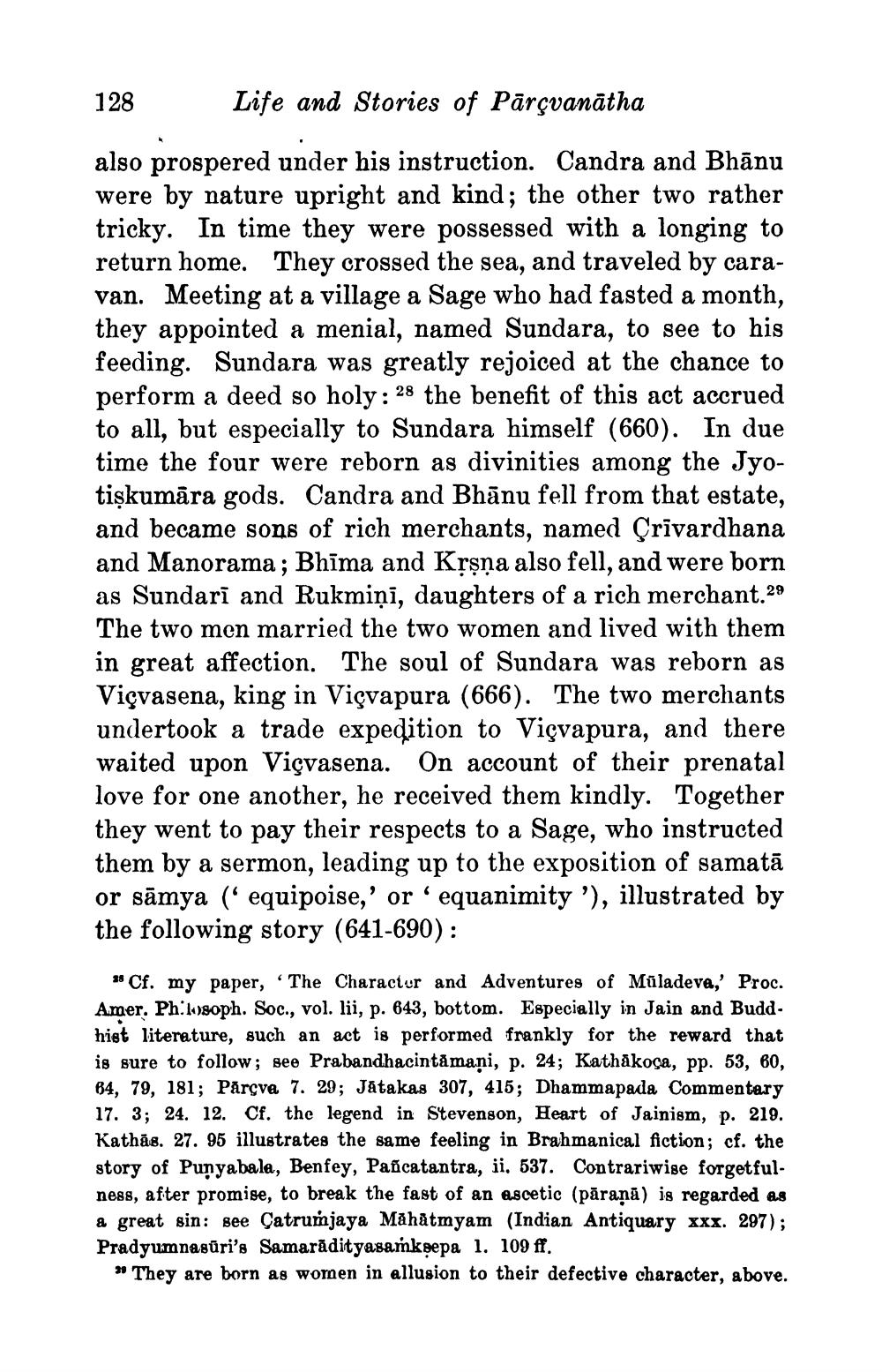________________
128
Life and Stories of Pārçvanātha
also prospered under his instruction. Candra and Bhānu were by nature upright and kind; the other two rather tricky. In time they were possessed with a longing to return home. They crossed the sea, and traveled by caravan. Meeting at a village a Sage who had fasted a month, they appointed a menial, named Sundara, to see to his feeding. Sundara was greatly rejoiced at the chance to perform a deed so holy: 28 the benefit of this act accrued to all, but especially to Sundara himself (660). In due time the four were reborn as divinities among the Jyotişkumāra gods. Candra and Bhānu fell from that estate, and became sons of rich merchants, named Çrivardhana and Manorama; Bhīma and Krşņa also fell, and were born as Sundarī and Rukmiņi, daughters of a rich merchant.29 The two men married the two women and lived with them in great affection. The soul of Sundara was reborn as Viçvasena, king in Viçvapura (666). The two merchants undertook a trade expedition to Viçvapura, and there waited upon Viçvasena. On account of their prenatal love for one another, he received them kindly. Together they went to pay their respects to a Sage, who instructed them by a sermon, leading up to the exposition of samatā or sāmya ('equipoise,' or ' equanimity '), illustrated by the following story (641-690):
** Cf. my paper, The Character and Adventures of Mūladeva,' Proc. Amer. Ph:180ph. Soc., vol. lii, p. 643, bottom. Especially in Jain and Budd. hist literature, such an act is performed frankly for the reward that is sure to follow; see Prabandhacintămani, p. 24; Kathakoça, pp. 53, 60, 64, 79, 181; Pärçva 7. 29; Játakas 307, 415; Dhammapada Commentary 17. 3; 24. 12. Cf. the legend in Stevenson, Heart of Jainism, p. 219. Kathās. 27. 95 illustrates the same feeling in Brahmanical fiction; cf. the story of Punyabala, Benfey, Pañcatantra, ii. 537. Contrariwise forgetfulness, after promise, to break the fast of an ascetic (pāranā) is regarded as a great sin: see Catrumjaya Māhātmyam (Indian Antiquary xxx. 297); Pradyumnasūri's Samarādityasanksepa 1. 109 ff.
» They are born as women in allusion to their defective character, above.




